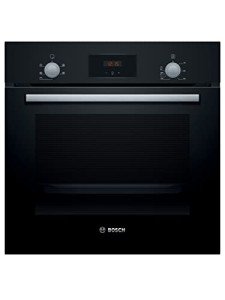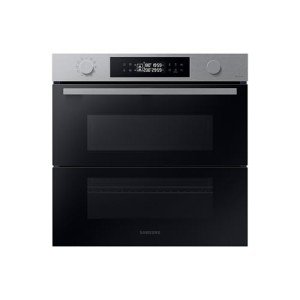Guide To Ovens Built In: The Intermediate Guide Towards Ovens Built In

본문

The Comprehensive Guide to Built-In Ovens: A Modern Kitchen Essential
Built-in ovens have ended up being a staple in modern kitchen areas, integrating aesthetics, functionality, and space performance into a single appliance. As property owners aim for both usefulness and style, comprehending the features, advantages, and considerations of built-in ovens can considerably improve the cooking experience. This post looks into what built-in ovens are, their varied types, installation considerations, and FAQs to assist consumers make informed decisions.

What is a Built-In Oven?
A built-in oven is a kitchen device created to be integrated ovens and hobs into cabinets, creating a smooth, cohesive try to find the kitchen. Unlike freestanding ovens, which occupy additional flooring space, built-in ovens are enclosed within wall units or cabinetry. They are readily available in numerous setups and sizes, enabling customized services that deal with the requirements of diverse homes.
Types of Built-In Ovens
Built-in ovens can be classified into various types based upon their features and cooking methods. Here are some of the most common types:
Single Built-In Ovens
- Best for small cooking areas and homes with modest cooking needs.
- Normally have one main cooking compartment, producing a compact footprint.
Double Built-In Ovens
- Perfect for passionate cooks and larger homes.
- Features 2 different cooking compartments for flexible meal preparation.
Wall Ovens
- Installed at eye level for easy gain access to.
- These ovens typically feature convection technology for even cooking results.
Steam Ovens
- Usage steam to cook food, protecting moisture and nutrients.
- Great for health-conscious individuals.
Combination integrated ovens uk
- Merge microwave integrated hob and oven conventional oven performances.
- Deal flexibility for fast meals and traditional baking.
Italian or European Style Ovens
- Frequently developed with unique visual appeals and advanced cooking technologies.
- Popular for high-end kitchen designs.
Advantages of Built-In Ovens
Built-in ovens offer an array of benefits that appeal to contemporary house owners seeking both performance and aesthetic appeals. A few of these advantages include:
- Space Efficiency: Built-in ovens conserve valuable counter space, which is particularly helpful in smaller kitchen areas.
- Improved Aesthetics: With a customized appearance, built-in ovens improve the total style of the kitchen while offering a seamless integration with kitchen cabinetry.
- Versatile Cooking Capacity: Available in various sizes, these ovens deal with the cooking needs of different households, from single residents to large households.
- Accessibility: The installation at eye level makes built-in ovens easier to access, minimizing the risk of spills or injuries when putting or eliminating hot dishes.
- Lower Energy Consumption: Many built-in ovens included energy-efficient modes that help in reducing electric intake gradually.
Setup Considerations
Installing a built-in oven requires cautious preparation and consideration. Here are some aspects to keep in mind:
- Dimensions: Before acquiring a built-in oven, measure the area offered to guarantee a proper fit. Built-in ovens come in specific standard sizes, so it is important to choose the right one.
- Ventilation: Adequate ventilation is needed for effective operation. Ensure there is an appropriate exhaust system that complies with regional building codes to avoid getting too hot.
- Electrical Requirements: Built-in Ovens Built In may require specific electric outlets or electrical wiring. Seek advice from with a certified electrical contractor to ensure that the installation abides by safety standards.
- Professional Installation: Although some house owners go with DIY setup, hiring an expert can help guarantee safety and appropriate installation for optimum performance.
Maintenance Tips for Built-In Ovens
Preserving your built-in oven not just extends its life expectancy however likewise guarantees effective operation. Here are some vital upkeep suggestions:
Regular Cleaning:
- Wipe down interior surface areas after each usage to prevent accumulation.
- Usage vinegar and baking soda for non-toxic cleaning.
Examine Seals:
- Inspect the door seals to prevent heat loss.
- Change worn-out seals without delay.
Test Thermostat:
- Periodically examine the temperature level precision with an oven thermometer. Adjust settings as necessary.
Service Annually:
- Schedule professional upkeep once a year to check electrical parts and make sure safe operation.
| Maintenance Task | Frequency | Purpose |
|---|---|---|
| Tidy interior | After each usage | Prevent buildup and smells |
| Examine seals | Monthly | Make sure no heat leaves |
| Test thermostat | Every 6 months | Inspect temperature precision |
| Professional service | Annually | Guarantee optimal efficiency |
FAQs About Built-In Ovens
1. Do built-in ovens can be found in different sizes?Yes, built-in ovens are available in numerous sizes to fit different kitchen setups and cooking requirements. It is necessary to determine the offered area before purchasing. 2. Can built-in ovens be used as regular ovens?Absolutely. Built-in ovens operate like routine ovens,
allowing you to bake, broil, and prepare a range of meals. 3. Are built-in ovens energy-efficient? Lots of built-in inbuilt ovens included energy-saving features and are designed to use less
electricity than freestanding designs. 4. How long does setup take?Installation time can differ based on complexity however typically ranges from 1 to 3 hours. It is recommended to work with an expert for optimal results. 5. What is the life-span of a built-in oven?With appropriate maintenance, built-in ovens can last anywhere from 10 to 15 years or longer.
Built-in ovens use a wide variety of advantages for Ovens Built in modern-day families, integrating benefit, energy efficiency, and elegant style into one option.
When choosing and installing a built-in oven, it's crucial to consider the type that best fits your cooking practices, available space, and visual choices. By understanding the benefits, installation requirements, Ovens Built in and maintenance required, house owners can raise their cooking experience and produce sensational kitchens that impress both family and guests alike. Buying a built-in oven can be a useful addition that streamlines cooking, improves home worth, and savors culinary delights for many years to come.







댓글목록0
댓글 포인트 안내